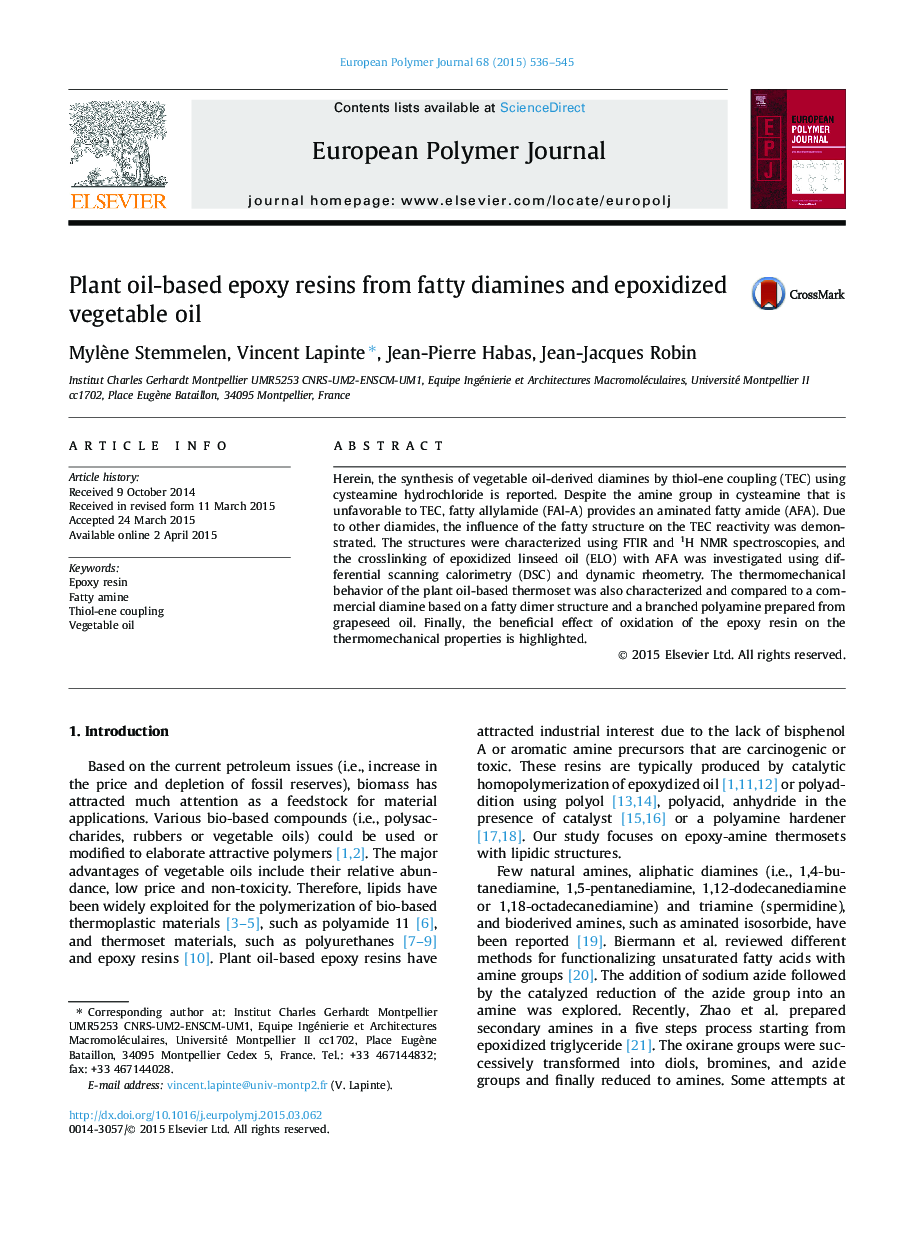| Article ID | Journal | Published Year | Pages | File Type |
|---|---|---|---|---|
| 1395102 | European Polymer Journal | 2015 | 10 Pages |
•We synthesize vegetable oil-derived diamine by thiol-ene coupling.•We report the curing of epoxy thermosets using epoxidized linseed oil and our fatty amines.•We examine the thermomechanical behavior of the bio-based epoxy resins.
Herein, the synthesis of vegetable oil-derived diamines by thiol-ene coupling (TEC) using cysteamine hydrochloride is reported. Despite the amine group in cysteamine that is unfavorable to TEC, fatty allylamide (FAl-A) provides an aminated fatty amide (AFA). Due to other diamides, the influence of the fatty structure on the TEC reactivity was demonstrated. The structures were characterized using FTIR and 1H NMR spectroscopies, and the crosslinking of epoxidized linseed oil (ELO) with AFA was investigated using differential scanning calorimetry (DSC) and dynamic rheometry. The thermomechanical behavior of the plant oil-based thermoset was also characterized and compared to a commercial diamine based on a fatty dimer structure and a branched polyamine prepared from grapeseed oil. Finally, the beneficial effect of oxidation of the epoxy resin on the thermomechanical properties is highlighted.
Graphical abstractThe synthesis of vegetable oil-derived diamines by thiol-ene coupling using cysteamine hydrochloride is described as well as the application as hardener of epoxidized linseed oil to get fully-lipidic epoxy thermoset. The crosslinking reaction is investigated by dynamic rheometry and the thermodynamical analysis.Figure optionsDownload full-size imageDownload as PowerPoint slide
